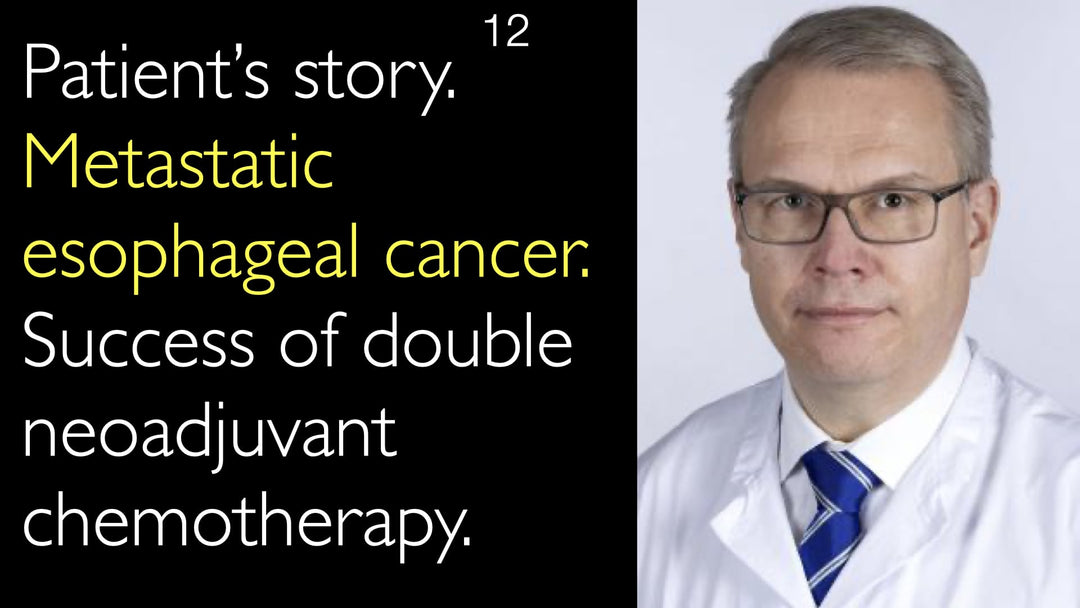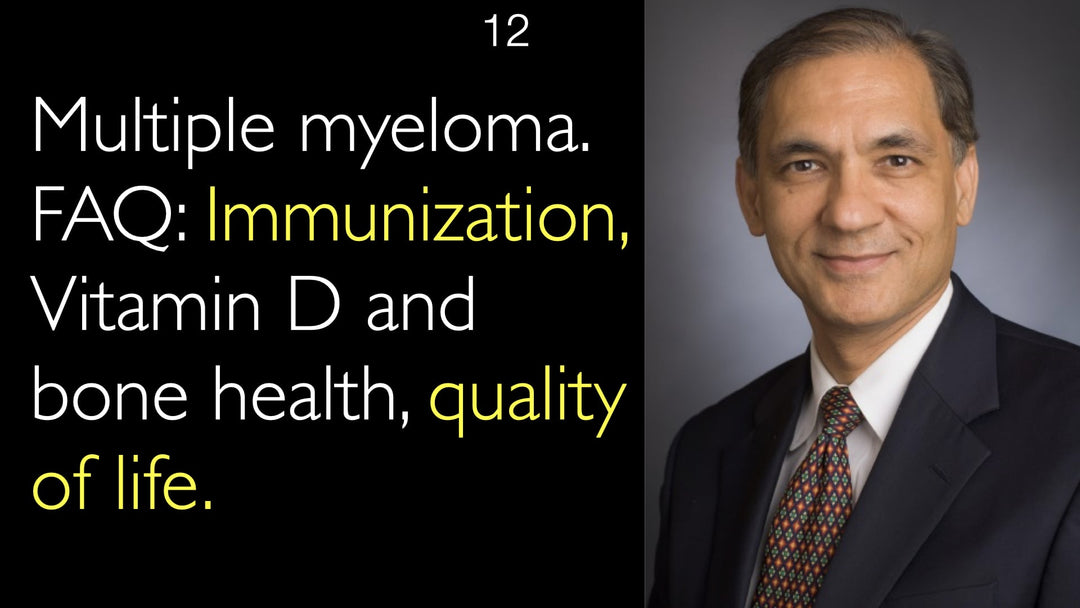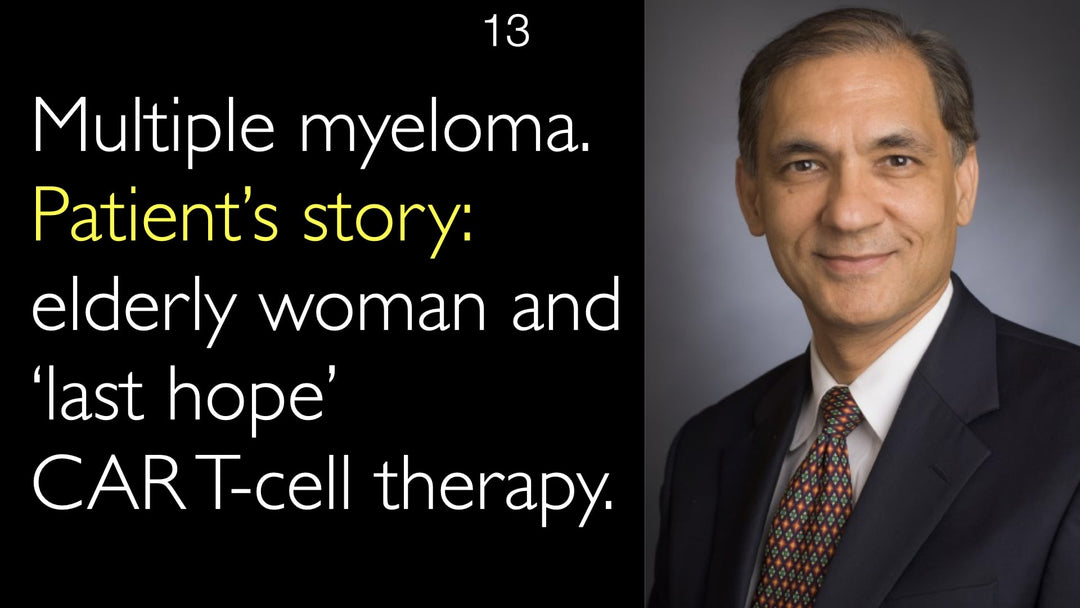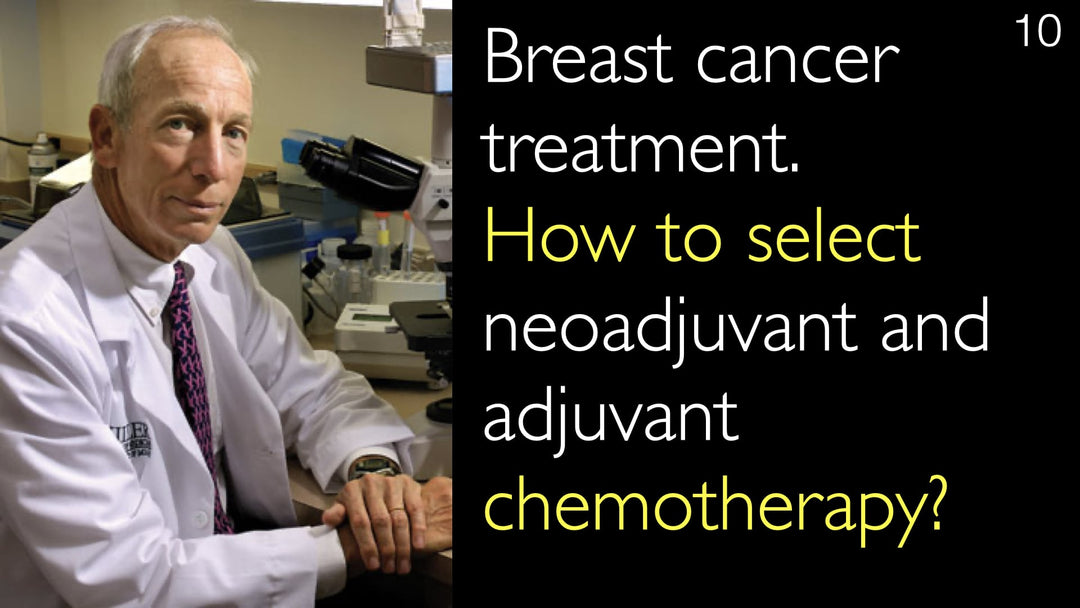Leading expert in esophageal cancer surgery, Dr. Jari Rasanen, MD, explains a successful metastatic esophageal cancer treatment. A patient received double neoadjuvant chemotherapy. The FLOT regimen was followed by EOX chemotherapy. This approach achieved a complete response in lymph node metastases. Surgery then successfully removed the primary tumor. The patient remains disease-free after three years. This case highlights the critical importance of precision medicine and multidisciplinary collaboration.
Metastatic Esophageal Cancer Treatment: Success with Sequential Neoadjuvant Chemotherapy
Jump To Section
- Multidisciplinary Approach to Esophageal Cancer
- Initial FLOT Chemotherapy Regimen
- Intraoperative Surgical Decision Making
- Secondary EOX Chemotherapy Treatment
- Successful Surgical Outcome
- Three-Year Disease-Free Survival
- Full Transcript
Multidisciplinary Approach to Esophageal Cancer
Dr. Jari Rasanen, MD, emphasizes the critical importance of multidisciplinary collaboration in treating complex esophageal cancer cases. This approach involves close coordination between surgical oncologists and medical oncologists. The team makes collective decisions about treatment sequencing based on individual patient responses. Precision medicine requires adapting treatment plans in real-time. This collaborative model ensures optimal outcomes for patients with advanced disease.
Initial FLOT Chemotherapy Regimen
The patient presented with locally advanced adenocarcinoma of the distal esophagus. Dr. Jari Rasanen, MD, and the oncology team initiated standard neoadjuvant chemotherapy using the FLOT regimen. FLOT chemotherapy (fluorouracil, leucovorin, oxaliplatin, and docetaxel) is a recognized protocol for esophageal adenocarcinoma. This aggressive chemotherapy approach aims to shrink tumors before surgical intervention. The goal is to improve surgical outcomes and increase the chance of complete resection.
Intraoperative Surgical Decision Making
During the planned surgical procedure, Dr. Jari Rasanen, MD, discovered extensive lymph node metastases. Metastases were found in both the cervical region and around the abdominal aorta. This intraoperative finding necessitated a critical decision point. Dr. Rasanen made the judgment to abort the immediate surgery. Instead, he referred the patient back to medical oncology for additional systemic therapy. This decision demonstrates advanced surgical judgment in complex cancer cases.
Secondary EOX Chemotherapy Treatment
The medical oncology team implemented a second-line chemotherapy regimen using EOX protocol. EOX chemotherapy (epirubicin, oxaliplatin, and capecitabine) represents an alternative treatment approach for metastatic esophageal cancer. PET CT imaging following this secondary chemotherapy showed an excellent treatment response. The imaging revealed complete resolution of previously detected lymph node metastases. This successful response to sequential chemotherapy enabled reconsideration of surgical intervention.
Successful Surgical Outcome
Dr. Jari Rasanen, MD, proceeded with esophageal cancer surgery following the successful secondary chemotherapy. The surgical team found that all lymph node metastases had completely disappeared. However, viable tumor cells remained in the primary esophageal tumor location. The surgery successfully removed the primary tumor with clear margins. The procedure was well-indicated and completed without complications. This outcome validated the decision to use sequential chemotherapy before definitive surgery.
Three-Year Disease-Free Survival
The patient has maintained excellent health outcomes with three years of follow-up monitoring. There is no evidence of recurrent esophageal cancer or metastatic disease. This long-term disease-free survival represents a remarkable success given the initial presentation with extensive metastases. Dr. Jari Rasanen, MD, highlights this case as exemplary of precision cancer medicine. The outcome demonstrates how adaptive treatment strategies can achieve optimal results even in advanced cancer cases.
Full Transcript
Dr. Anton Titov, MD: Professor Rasanen, to conclude our conversation, is there a clinical story or vignette that could illustrate some of the topics we discussed today?
Dr. Jari Rasanen, MD: There was one lady who had adenocarcinoma of the distal esophagus a few years back. We did the staging, and it looked like locally advanced adenocarcinoma. We decided she would get neoadjuvant chemotherapy, as we always do.
The medical oncologist gave her the FLOT regimen chemotherapy. After that, we did the surgery on her. At the time of surgery, we found there were a lot of lymph node metastases both in her neck and around her aorta in the abdomen.
We decided it was not time to continue the surgery. We sent her back to the medical oncologist for a different type of chemotherapy treatment.
They gave her the EOX chemotherapy treatment, which is another type of chemo. After that, the PET CT scan showed a very good response to the treatment.
I decided we take her again to the operating room and do the surgery now. We were able to find that all the lymph node metastases had disappeared.
Still, there were some viable tumor cells in the primary tumor. The surgery was very well indicated.
After two types of chemo treatments, we did the surgery, and everything went fine. We have followed up with her for three years, and she is doing fine with no evidence of recurrent disease.
This is a good example of precision medicine. You need to collaborate as a surgeon with your medical oncologist.
You need to be able to make a judgment when it is a good decision to continue surgery or whether it's better to combine different treatments to achieve the optimal outcome.
Dr. Anton Titov, MD: Professor Rasanen, thank you! This is a very poignant story, and it illustrates well precision medicine, precision surgery, and the need for multidisciplinary team assessment of every patient.
Dr. Jari Rasanen, MD: Yeah, certainly. I completely agree.
Dr. Anton Titov, MD: Professor Rasanen, thank you very much for this conversation about esophageal cancer, precancerous conditions, and some issues with minimally invasive lung cancer surgery. We hope to return to you in the future for further insights. Thank you very much for joining us from Helsinki.
Dr. Jari Rasanen, MD: Thank you. It was certainly a pleasure.







